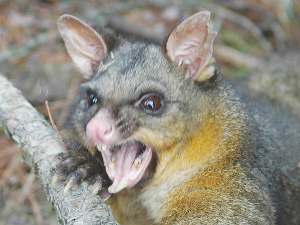Bay of Plenty Regional Council says the region has received help in its pest control efforts from an online mapping system.
Over 30,500 pests have been recorded as caught across the 160,800 ha with traps and bait stations, providing GPS data to map and measure success.
Bay of Plenty Regional Council has been working alongside Tauranga City Council, Western Bay of Plenty District Council, Predator Free Bay of Plenty, Enviro Hub, Bay Conservation Alliance, Manaaki Kaimai Mamaku Trust, and Department of Conservation to get to the Government goal of making New Zealand predator free by 2050.
The Predator Free 2050 vision is focused on the complete removal of the five most damaging predators: Rats, stoats, ferrets, weasels, and possums.
Manaaki Kaimai Mamaku Trust chief executive Louise Saunders says it has been a longstanding mission in the community to restore the Mauri or life force of the Kaimai Mamaku area.
She says the mapping technology means it is now possible to measure pest control progress in real time.
“The map is inspirational and demonstrates how committed the Western Bay of Plenty community is to restoring biodiversity,” Saunders says. “Monitoring is crucial to ensuring our actions are contributing positively to the mission, and now we can see exactly where the gaps are and work together to fill them.”
Regional Council land management officer Anna Dawson says the mapping system shows the importance and value of the region’s community and volunteer groups. The care groups and volunteer contributions are invaluable and should continue to be recognised and celebrated for the extensive mahi they undertake contributing to positive environmental outcomes.
“The mapping will allow for the future planning for expansion of pest animal control and volunteering,” Dawson says.
Predator Free Bay of Plenty chief executive Laura Wragg says everyone has a role to play in pest control.
“Pests have consumed both the forest floor and the canopy,” she says. “By implementing pest animal control across our rohe in forest, rural and urban areas we will help protect, preserve, and enhance our biodiversity and allow the native flora and fauna to survive.


















